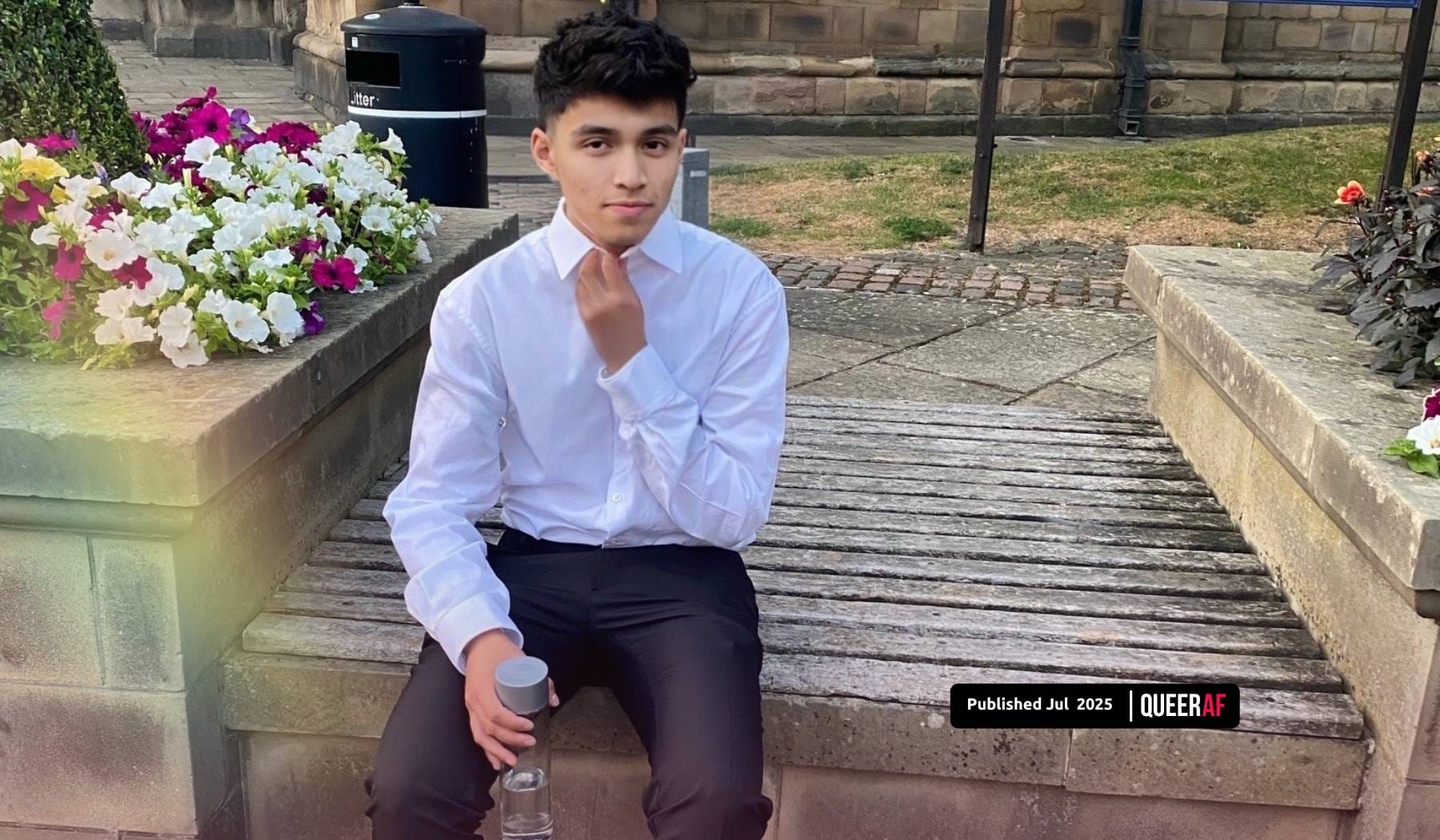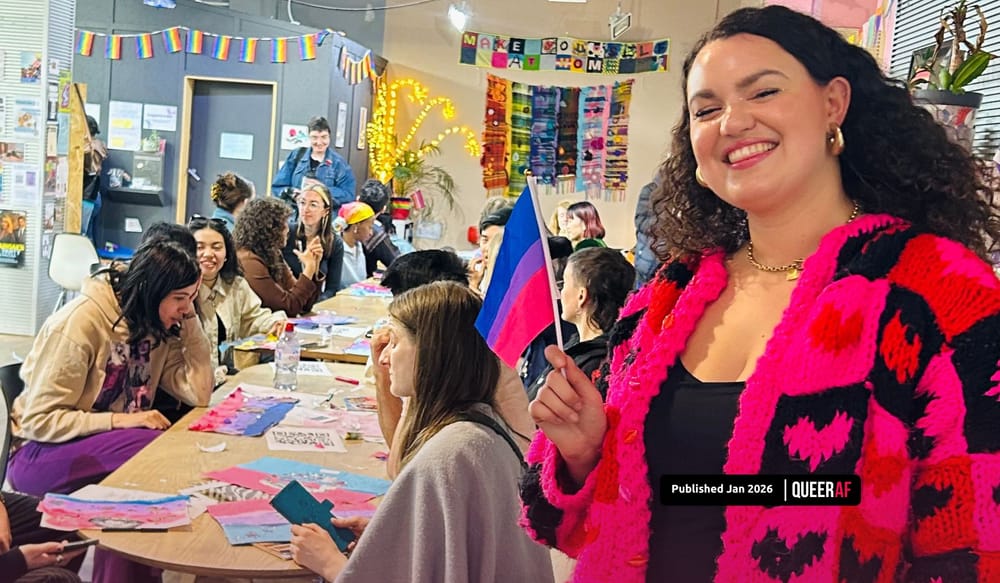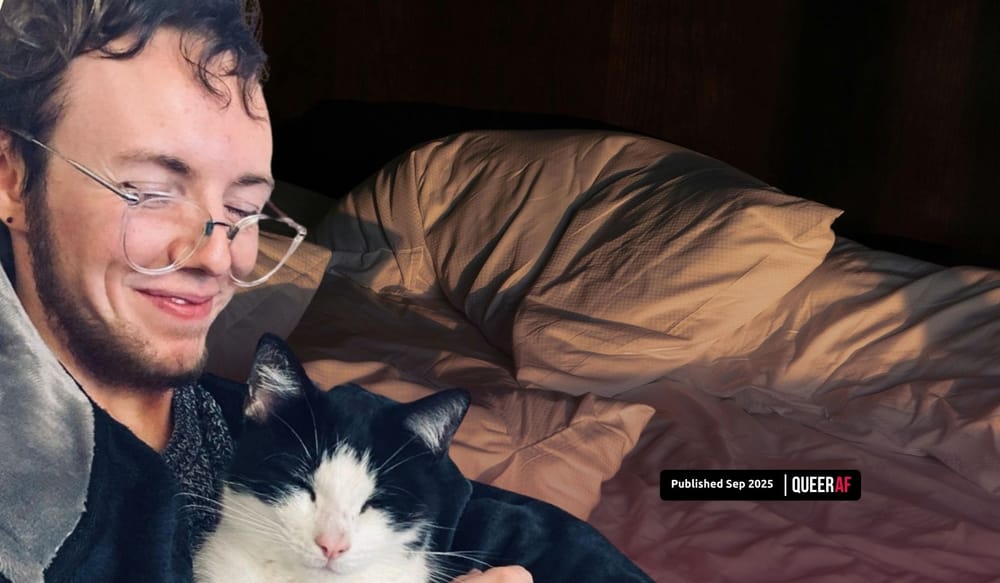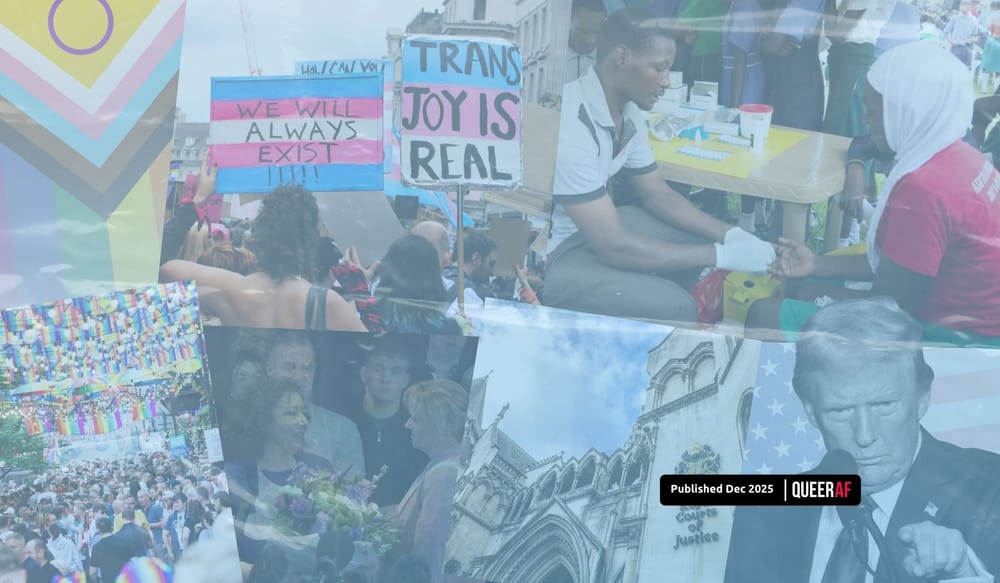
This Ramadan, while the faithful bowed beneath minarets and moonlight, Imam Muhsin Hendricks, a man who lived openly in both his faith and sexuality, was murdered. He spent his life doing something truly subversive, stitching together belief and being when both appeared seemingly at odds.
Hendricks founded one of the first mosques welcoming queer Muslims, defying the notion that faith is only accessible to the orthodox. Instead, he saw faith as a language, a living, evolving conversation that belongs to anyone who seeks it. His murder was a brutal reminder that visibility can come at a deadly cost and that no amount of prayer, no depth of devotion, will save you from the violence bred by intolerance in the world.
Previously, I had held religion at arm’s length for these reasons alone, believing it had become too vast, too impersonal and too compromised as a system of authority and guidance.
I was sceptical about the very idea of religion returning into my life again post-transition. But fasting during the holy month of Ramadan, after so many years away, became a quiet doorway back, not to blind belief but to a renewed, personal reckoning with faith’s meaning.
Among queer Muslims, fasting is often a deliberate act of recovering space in a tradition that often excludes us. Sarah Khan, writing for gal-dem, describes fasting as a “reclamation of faith,” a conscious return to ritual that affirms both identity and devotion.
Similarly, El-Farouk Khaki, a scholar and commentator on queer Muslim identity, says it is balancing act of presence and absence, insisting we are part of this tradition, not in spite of who we are, but because of it.
I hoped then, at the very least, to make peace with a practice I had once abandoned and create a space where my identity and faith could sit side by side, even if only for a month.
Since transitioning, my life has revolved around the choreography of visibility. When to be seen, when to disappear, and the quiet calculations that come with both. These are not free choices, but survival strategies shaped by a culture that fears what it cannot easily categorise.
But during Ramadan, I discovered a kind of divine anonymity. No one could see what I was doing, and in that obscurity, fasting acquired a new sincerity. It connected me not just to a tradition, but to others who had also been told they didn’t belong.
Around the world, queer Muslims gather openly to break fast, whether at London’s Imaan, or the Inclusive Mosque Initiative in Manchester. In cities from Melbourne to Berlin, these gatherings claim space in borrowed rooms and community spaces. These stories remind us that queer Muslims are not marginal or accidental participants in Islam’s story, but fundamental to its ongoing story.
Until society embraces the full spectrum of human identity, fasting and other rituals practiced beyond traditional boundaries remain acts of quiet protest as much as faith. To deny that tension is to flatten what belief truly is: not certainty, but struggle. Not perfection, but simple presence and the reassurance to arrive exactly as you are.
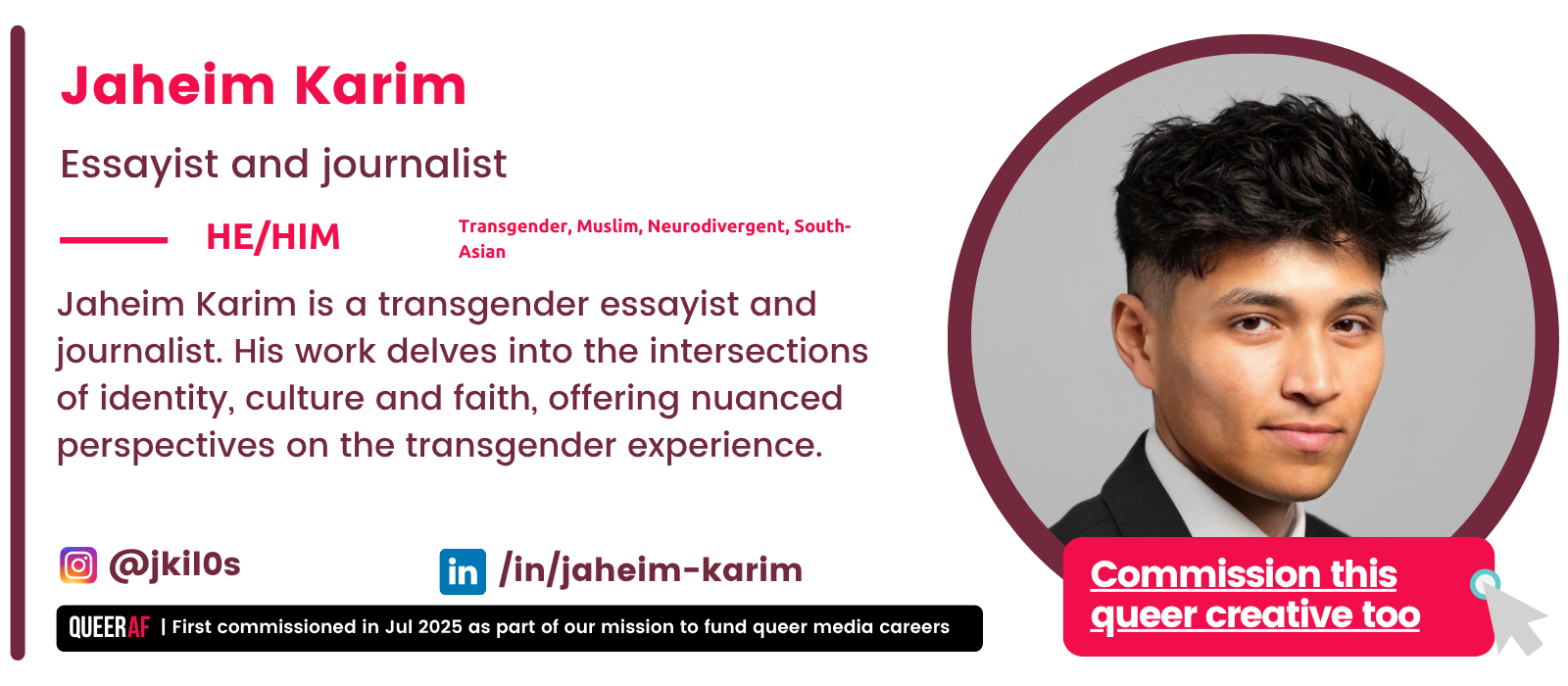
A HUGE thank you to our supporters
Thank you so much for supporting QueerAF's pride month membership drive. Thanks to a surge of donations and memberships in the final hours, we smashed our crowdfunding target.
It's going to put QueerAF in a much stronger position over the next year to pursue investigations, hold power to account, and invest in a new generation of LGBTQIA+ creatives - who we'll support to change the media.
Our Pride month sale may be over, but if you can support us, you can join over 600 QueerAF members from as little as the price of coffee each month.

